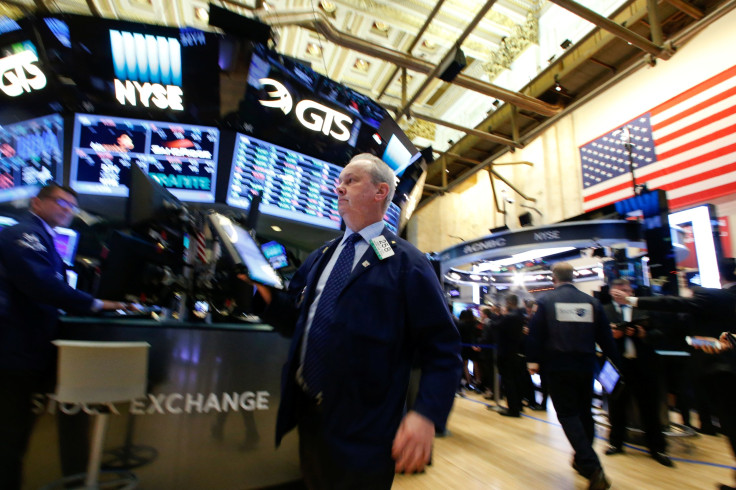How Does The Election Affect The Stock Market? Clinton Leads Trump As DJIA, Nasdaq React

Uncertainty is bad for business, so the general consensus among economists goes. This might lead one to expect a miniature economic downturn in the lead-up to an election tally, when the future of American politics is all but certain.
But on Tuesday, the stock market soared for a second straight day as polls appeared to favor Democratic nominee Hillary Clinton. As of Tuesday afternoon, the S&P 500 (SPX) index had risen 11.33 points, or 0.53 percent, the Dow Jones Industrial Average (DJI) increased by 76.05 points, or 0.42 percent and the Nasdaq Composite (IXIC) was up by 20.92 points, or 0.40 percent.
Tuesday’s gains were dwarfed by those that followed last weekend’s news that FBI director James Comey upheld his previous decision not to indict the former secretary of state for her use of a private email server while in office.
Since Comey’s decision Sunday, the Dow Jones index soared to a Tuesday high that was 3.2 percent over Friday’s market close. The Nasdaq and S&P 500 indexes both rose to highs 2.8 percent over their values at market close on Friday.
The markets’ approval of an increasingly likely Clinton victory may be tied to predictions for her potential economic performance as president. Clinton is overwhelmingly endorsed by economists as the better option for the presidency and is expected to spur the creation of 3.2 million new jobs on top of the projected 10.4 million under current law. A Trump presidency, by contrast, was predicted to create 3.5 million fewer jobs than would be created under current law.
As analysts told CNBC on Monday, markets also tend to prefer a government in which the executive and legislative branches are ideologically split. With the odds mounting of a Clinton presidential victory and of Republicans keeping at least the House, if not the Senate, indexes responded favorably.
“This is mostly a political-relief rally,” Key Private Bank chief investment strategist Bruce McCain told CNBC on Monday. “The market tends to favor a divided-control scenario and this raises those odds.”
The markets’ positive performance isn’t purely symptomatic of the current election cycle’s offerings for the future of the business world. In nearly two-thirds of presidential elections since 1928, stock markets have rallied in the three months leading up to the election, business forecasting publisher Kiplinger found, citing data from InvesTech. And, tellingly, 12 of the 14 elections that saw positive stock market movement led to incumbents returning to the Oval Office. In other words, it was a continuation of the status quo, diminishing feelings of uncertainty. Conversely, seven of the eight elections in which markets were down led to the ousting of an incumbent.
© Copyright IBTimes 2024. All rights reserved.





















